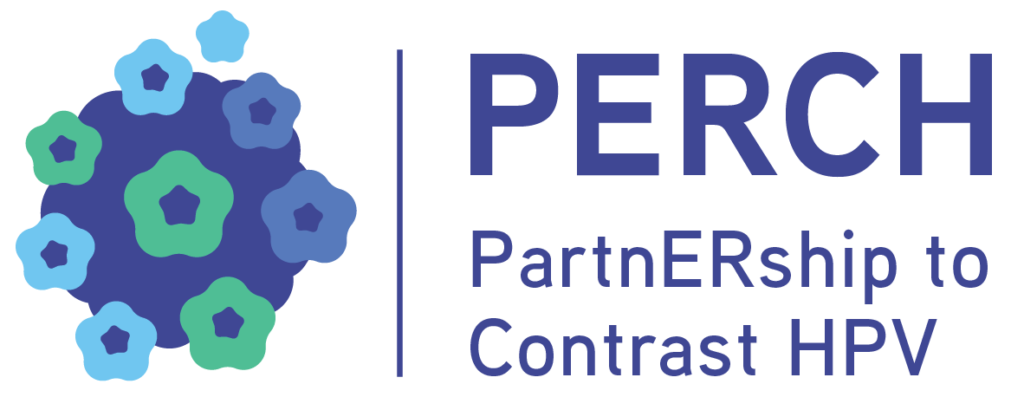Work Package 7 (WP) of the PERCH project is dedicated to improving the communication skills of healthcare professionals regarding the human papillomavirus (HPV) vaccine. By improving communication between healthcare professionals, children/adolescents and their parents, WP7 aims to increase confidence in the HPV vaccine. The first task was a comprehensive assessment of the specific training needs of each participating country and the extent to which existing programs meet these needs. Based on this assessment, countries will (by the end of the project) either introduce new training courses or adapt existing courses. Based on the key findings from the country-specific reports, a common training curriculum has been developed, which includes a description of the content of the training modules as well as appropriate materials and methods for the training. The curriculum serves as a guide or checklist for the PERCH countries, which can be adapted to the respective national context.
To facilitate the needs-assessment, a template for the country report was developed. This template was distributed in March 2023 and included the government framework, key healthcare professionals involved in HPV vaccination, existing training programs and specific training needs. Several countries – Croatia, Estonia, France, Germany, Greece, Hungary, Italy, Poland, Romania, Slovenia, Spain and the Slovak Republic – participated in this process using various methods such as literature reviews, surveys and focus groups. WP7 then analyzed the collected data to identify common themes and differences in training needs
All participating countries have national recommendations for HPV vaccination, although there are differences in terms of the type of vaccination and the role of professional groups. In general, doctors (general practitioners, pediatricians) and nurses in primary health care are the main providers of HPV vaccination. In some countries, gynecologists also play an important role, e.g. for catch-up vaccination or in the context of cervical cancer screening. In some countries/regions school doctors and school nurses play an important role.
Although regular vaccination training is offered in most countries, there are still significant gaps, particularly in communication training for the HPV vaccine. Social and organizational barriers, such as vaccine hesitancy and logistical challenges, have been reported. There is a strong demand for more comprehensive HPV vaccination training that emphasizes effective communication with target populations.
Countries varied in their assessment of training topics, but were consistent in emphasizing the importance of understanding HPV infection and vaccine efficacy, safety, side effects, health consequences of HPV infection, routes of transmission and aspects of communication. Both online and face-to-face training methods were valued, with a preference for high-quality, accredited and flexible training programs. Ideally, these programs should be accessible, affordable and led by qualified healthcare professionals with experience in communication.
The results show that in most countries there is a need for improved training, especially in regard to communication aspects of HPV vaccination. Social barriers, which exist to varying degrees in different countries, can be mitigated by equipping healthcare professionals with better communication skills and accurate information. The reports also emphasize the need for a flexible approach to training that is tailored to the individual needs of each country, rather than using a one-size-fits-all model.


